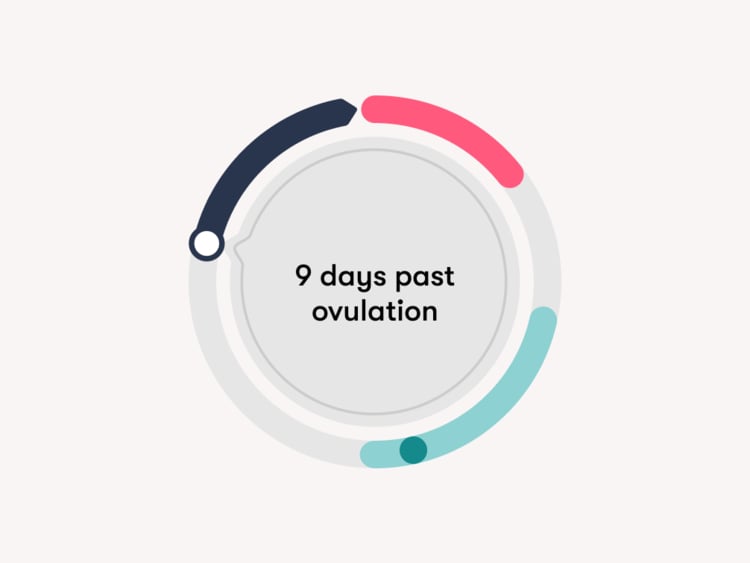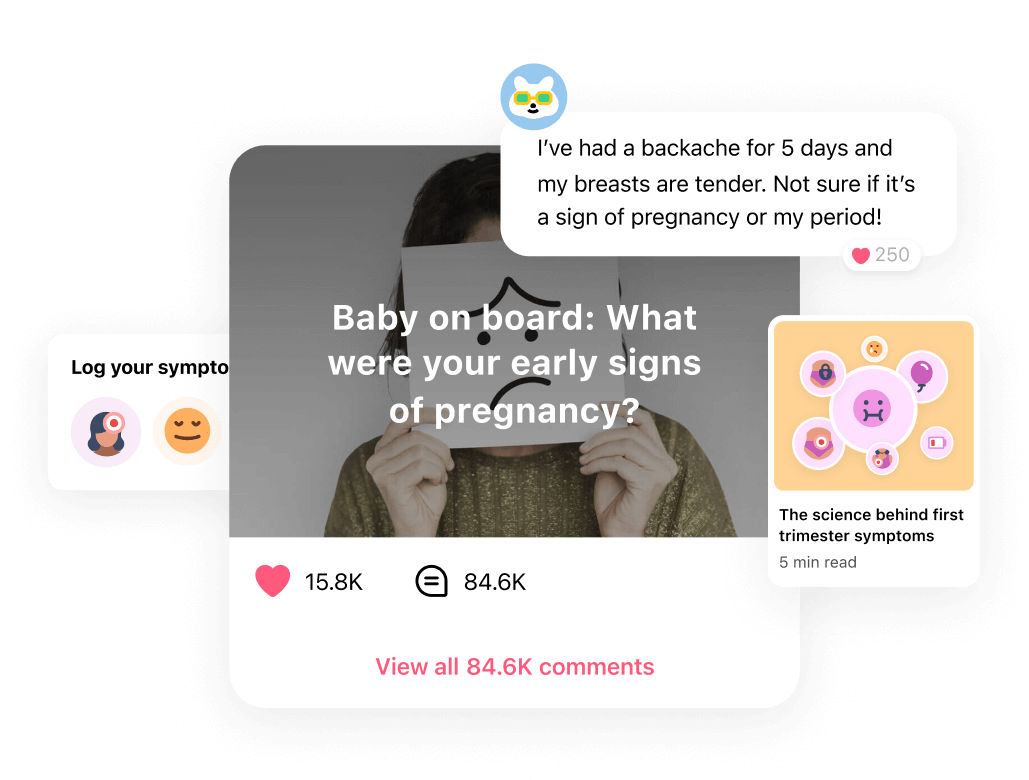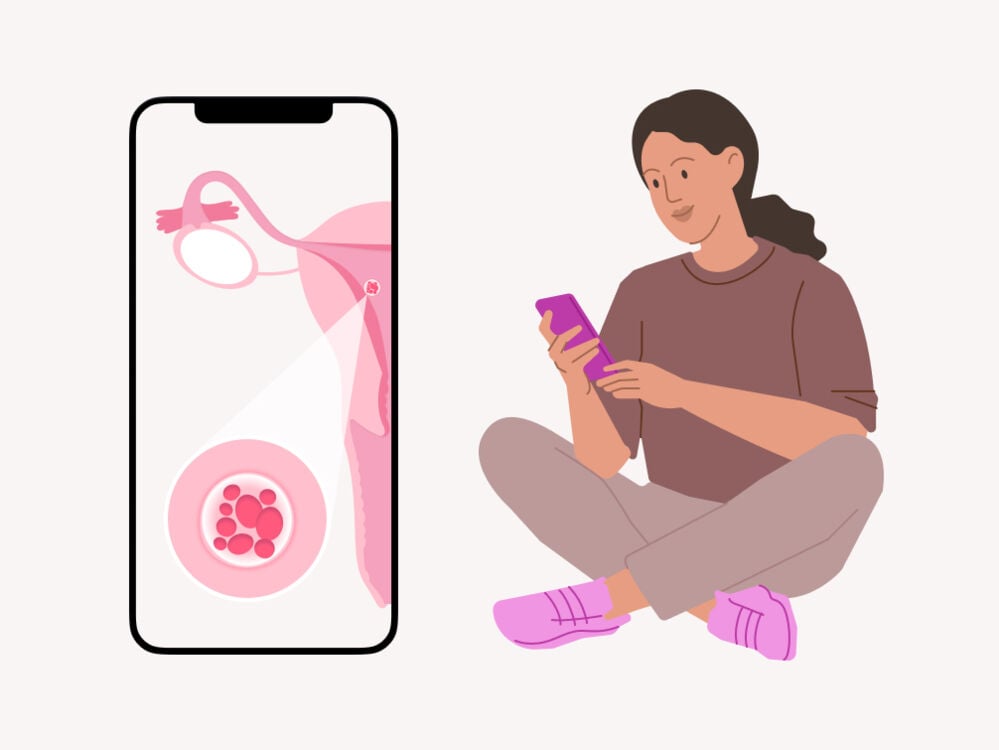At 9 DPO, you’re at an important part of your cycle. From potential pregnancy symptoms to hormonal changes, here’s the lowdown on what you might expect.
-
Tracking cycle
-
Getting pregnant
-
Pregnancy
-
Help Center
-
Flo for Partners
-
Anonymous Mode
-
Flo app reviews
-
Flo Premium New
-
Secret Chats New
-
Symptom Checker New
-
Your cycle
-
Health 360°
-
Getting pregnant
-
Pregnancy
-
Being a mom
-
LGBTQ+
-
Quizzes
-
Ovulation calculator
-
hCG calculator
-
Pregnancy test calculator
-
Menstrual cycle calculator
-
Period calculator
-
Implantation calculator
-
Pregnancy weeks to months calculator
-
Pregnancy due date calculator
-
IVF and FET due date calculator
-
Due date calculator by ultrasound
-
Medical Affairs
-
Science & Research
-
Pass It On Project New
-
Privacy Portal
-
Press Center
-
Flo Accuracy
-
Careers
-
Contact Us
9 DPO/days pregnant*: Are there any pregnancy symptoms at 9 days past ovulation?


Every piece of content at Flo Health adheres to the highest editorial standards for language, style, and medical accuracy. To learn what we do to deliver the best health and lifestyle insights to you, check out our content review principles.
Do you suspect you might be pregnant, but you’re not sure when to take a pregnancy test? If you’re trying to conceive, counting down the days between ovulation and the start of your next period can quickly drive you stir-crazy. In fact, this stage in your cycle is often referred to as the “two-week wait” (TWW), and it sure can feel like an eternity.
So, what do you need to know? Nine days past ovulation (DPO) is still too early to take a home pregnancy test. But on the plus side, 9 DPO is an important milestone in your cycle. While you might not feel any different, implantation — when your fertilized egg attaches to your uterine lining if you have conceived — usually happens at around this time, signaling the official start of pregnancy.
Let’s take a closer look at what’s happening in your body at 9 DPO, including potential symptoms you might experience and when you can finally take that pregnancy test.
*What you might call 9 days pregnant is actually 9 days past ovulation (DPO). Ovulation is around the midpoint in your cycle where one of your ovaries releases an egg. Doctors date pregnancy from the first day of your last menstrual period, which happens about two weeks before ovulation. So when you’re 9 DPO, medically, that puts you at roughly 3 weeks and 2 days pregnant.
Key takeaways
- At 9 DPO, you might start to notice early signs of pregnancy, but you still need to wait until the first day of your missed period (14 DPO) to take a home pregnancy test for an accurate result.
- These pregnancy tests work by detecting the hormone hCG, which your body starts to produce following implantation. However, right now, implantation might not have happened, or if it has, you might not have enough hCG in your pee to give a clear result.
- Your hCG levels might be high enough to detect with a blood test at 9 DPO. This is because blood tests are more sensitive than urine tests. Speak to your doctor for more information.

 Over
7.8M
ratings averaging
4.8/5
*
Over
7.8M
ratings averaging
4.8/5
*
Understand your body’s signals with the Flo app
- Chat with others who are trying to get pregnant.
- Get trusted information on signs of pregnancy from 100+ medical experts.
- Log your symptoms and learn what they could be trying to tell you.
 Over
7.8M
ratings averaging
4.8/5
*
Over
7.8M
ratings averaging
4.8/5
*

Trying to conceive?
The Flo app can help you through the two-week wait.

 Over
7.8M
ratings averaging
4.8/5
*
Over
7.8M
ratings averaging
4.8/5
*
Understand your body’s signals with the Flo app
- Chat with others who are trying to get pregnant.
- Get trusted information on signs of pregnancy from 100+ medical experts.
- Log your symptoms and learn what they could be trying to tell you.
9 DPO: What to expect?
At 9 DPO, you’re in the luteal phase of your cycle, but what does that mean?
Your menstrual cycle can be split into two stages:
- The follicular phase: Depending on the length of your cycle, the first part of your cycle — your follicular phase — usually happens between days one and 14. A new menstrual cycle starts on the first day of your period, so it’s fairly easy to remember when you might enter your follicular phase. During this time, your estrogen levels rise, and the lining of your uterus thickens.
- The luteal phase: Between days 14 and the end of your cycle, you enter the luteal phase. It starts after ovulation, which is when one of your ovaries releases an egg. Following this, your progesterone levels rise, and if your egg was fertilized by a sperm, then it may implant into the lining of your uterus, and you may become pregnant.
“After ovulation, when the egg is fertilized by the sperm, this new budding embryo travels down the tube into the uterus,” explains Dr. Renita White, obstetrician and gynecologist, Georgia Obstetrics and Gynecology, Georgia, US.
Your egg may now be getting ready to implant itself into your uterine lining. If implantation does take place, your placenta begins to form. This is a whole new organ that develops in pregnancy, and it starts to release human chorionic gonadotropin (hCG) — the pregnancy hormone that at-home pregnancy tests look for in your pee to figure out if you’re pregnant or not. “After implantation, the new pregnancy begins secreting increasing levels of pregnancy hormones, like hCG and progesterone,” says Dr. White.
“These rising levels help to maintain the pregnancy so your body doesn’t trigger a menstrual cycle, but they also can cause bothersome symptoms typical for pregnancy,” says Dr. White.
Nine DPO is still very early into a potential pregnancy, so it’s also perfectly normal not to feel anything at all.
Can I take a pregnancy test at 9 DPO, or is it too early?
Thinking you’re pregnant but not being entirely sure can be stressful, so it’s not surprising that you want to take a home pregnancy test as early as you can. But Dr. White says you’re unlikely to get an accurate result at 9 DPO because “the level of pregnancy hormones (hCG) is not high enough [yet] to be secreted into your urine.” That means you could end up with a false-negative test result. For an accurate result, the best time to take an at-home urinary hCG pregnancy test is the first day of your missed period.
In the meantime, try to be kind to yourself. Doing little things to take your mind off taking a test and putting in place strategies to regularly take your mind off things over the two-week wait can help. Starting a new book or box set, committing to a daily exercise or mindfulness practice, or calling a friend each time your mind wanders to it can all make a difference.
Pregnancy symptoms at 9 DPO
If implantation has taken place, your estrogen and progesterone levels might start to rise at about 9 DPO. “It may be possible to have pregnancy symptoms at this time,” says Dr. White. “The pregnancy hormone (hCG) levels are high enough to be detected in the blood and can cause early symptoms for some.”
However, it could also be your period coming, which can be hard to get your head around if you’re trying to conceive. Before we look at what might be going on for you at 9 DPO, please remember that trying for a baby can be a really emotional time, so whatever you’re feeling right now is OK.
Fatigue
Fatigue is one of the most common early signs of pregnancy at 9 DPO. Your body is working hard to support your growing baby while rising progesterone levels can contribute to exhaustion, so it’s normal to feel extra sleepy at this time. However, many people feel tired in the run-up to their period, too.

Cramping and backache
Cramping at 9 DPO can feel a lot like your period is coming, but you might also feel it around implantation. It’s important to note that there’s little scientific evidence to suggest that cramping is a sign of implantation. However, some people say they feel it.
Breast changes
Thanks to rising hormone levels, increased blood flow, and fluid retention, your breasts might feel sore and heavy during early pregnancy. However, breast pain is one of the most common signs your period is on its way, too.
Spotting
Bleeding can be worrying when you’re trying to conceive, but light spotting at 9 DPO is a fairly common early pregnancy symptom. Many women mistake it for a period, but spotting often happens during implantation as a result of your fertilized egg embedding itself in your uterine lining. That said, if the bleeding gets heavier or lasts for more than a day or two, it’s likely to be your period.
Take a quiz
Find out what you can do with our Health Assistant
9 DPO and no symptoms
If you’re 9 DPO and you don’t feel any different, try not to worry. “Some people don’t have pregnancy symptoms by 9 DPO because the hormone levels are not high enough in the bloodstream yet,” says Dr. White. And if you are pregnant, annoyingly, there isn’t a fixed timeline for when you’ll feel it. Everyone experiences pregnancy differently. Aside from missing your period, you might not have any symptoms for several weeks, while others might have been able to tell much earlier.
More FAQs
Is 9 DPO too late for implantation?
Research has found that — in an average 28-day cycle — implantation is most likely to happen between six and 10 DPO, so, no, 9 DPO is not too late for implantation to take place.
What does implantation feel like at 9 DPO?
Everyone experiences pregnancy slightly differently. While there’s little scientific evidence to suggest that cramping is a sign of implantation, some people say they feel it. You might feel a slight twinge in your lower abdomen, cramping in your back for several days, or it might feel similar to period pain.
Is 9 DPO likely to give a false negative?
9 DPO is too early to take a pregnancy test. If you test too soon, you are likely to get a false-negative test result, either because implantation hasn’t taken place yet or you simply haven’t produced enough hCG to register on a home test. For an accurate result, the best time to take an hCG pregnancy test is the first day of your missed period.
What should progesterone levels be at 9 DPO?
The hormone progesterone is responsible for regulating your menstrual cycle but also plays a critical role in preparing your body for a potential pregnancy. Typically, progesterone levels hit their peak in the days after ovulation and continue to rise if you are pregnant.


Hey, I'm Anique
I started using Flo app to track my period and ovulation because we wanted to have a baby.


The Flo app helped me learn about my body and spot ovulation signs during our conception journey.


I vividly
remember the day
that we switched
Flo into
Pregnancy Mode — it was
such a special
moment.
Real stories, real results
Learn how the Flo app became an amazing cheerleader for us on our conception journey.
References
“Week 4.” NHS, www.nhs.uk/start-for-life/pregnancy/week-by-week-guide-to-pregnancy/1st-trimester/week-4/. Accessed 20 Nov. 2023.
“Am I Pregnant?” Cleveland Clinic, my.clevelandclinic.org/health/articles/9709-pregnancy-am-i-pregnant. Accessed 16 Nov. 2023.
Anderson, Jackie, and Kenn R. Ghaffarian. “Early Pregnancy Diagnosis.” StatPearls, StatPearls Publishing, 2023.
“Doing a Pregnancy Test.” NHS, www.nhs.uk/pregnancy/trying-for-a-baby/doing-a-pregnancy-test/. Accessed 21 Nov. 2023.
“Follicular Phase.” Cleveland Clinic, my.clevelandclinic.org/health/body/23953-follicular-phase. Accessed 20 Nov. 2023.
“Home Pregnancy Tests: Can You Trust the Results?” Mayo Clinic, 23 Dec. 2022, www.mayoclinic.org/healthy-lifestyle/getting-pregnant/in-depth/home-pregnancy-tests/art-20047940.
“Luteal Phase.” Cleveland Clinic, my.clevelandclinic.org/health/articles/24417-luteal-phase. Accessed 20 Nov. 2023.
“Ovulation.” Cleveland Clinic, my.clevelandclinic.org/health/articles/23439-ovulation. Accessed 20 Nov. 2023.
“Pregnancy Tests.” Cleveland Clinic, my.clevelandclinic.org/health/diagnostics/9703-pregnancy-tests. Accessed 20 Nov. 2023.
“Progesterone.” Cleveland Clinic, my.clevelandclinic.org/health/body/24562-progesterone. Accessed 20 Nov. 2023.
Russell, C. S. “Hormones in Pregnancy and Labour.” The Practitioner, vol. 192, Mar. 1964, pp. 351–58.
Thiyagarajan, Dhanalakshmi K., et al. “Physiology, Menstrual Cycle.” StatPearls, StatPearls Publishing, 2022, www.ncbi.nlm.nih.gov/books/NBK500020/.
Wilcox, Allen J., et al. “Time of Implantation of the Conceptus and Loss of Pregnancy.” The New England Journal of Medicine, vol. 340, no. 23, 10 June 1999, pp. 1796–99, doi: 10.1056/NEJM199906103402304.
History of updates
Current version (08 December 2023)
Published (19 February 2019)
In this article

Get your personal guide to fertility
-
Learn how to read your body's ovulation signals
-
Find daily conception tips from our experts
-
Chat with others who are trying to get pregnant




